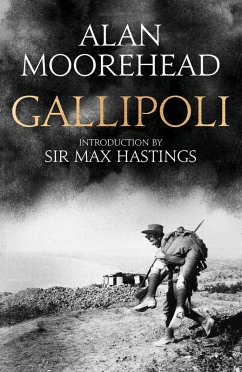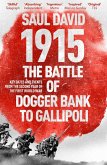A century has now gone by, yet the Gallipoli campaign of 1915-16 is still infamous as arguably the most ill conceived, badly led and pointless campaign of the entire First World War. The brainchild of Winston Churchill, then First Lord of the Admiralty, following Turkey's entry into the war on the German side, its ultimate objective was to capture the Gallipoli peninsula in western Turkey, thus allowing the Allies to take control of the eastern Mediterranean and increase pressure on the Central Powers to drain manpower from the vital Western Front.
From the very beginning of the first landings, however, the campaign went awry, and countless casualties. The Allied commanders were ignorant of the terrain, and seriously underestimated the Turkish army which had been bolstered by their German allies. Thus the Allies found their campaign staled from the off and their troops hopelessly entrenched on the hillsides for long agonising months, through the burning summer and bitter winter, in appalling, dysentery-ridden conditions. By January 1916, the death toll stood at 21,000 British troops, 11,000 Australian and New Zealand, and 87,000 Turkish and the decision was made to withdraw, which in itself, ironically, was deemed to be a success.
First published in 1956, when it won the inaugural Duff Cooper Prize, Alan Moorehead's book is still regarded as the definitive work on this tragic episode of the Great War. One could argue he was the first writer to capture the true turmoil that occurred in this campaign with his colourful, analytical and compelling style of prose. Sir Max Hastings himself says in this new introduction that he was inspired as a young man by Moorehead's books to become a reporter himself. With in-depth analysis of the campaign, the objectives both sides set themselves, and with character sketches of the main players, it brings the complex operation to life, showing how and why it went so terribly wrong and a century on, remains a by word for the loss of human life.
Dieser Download kann aus rechtlichen Gründen nur mit Rechnungsadresse in A, D ausgeliefert werden.









